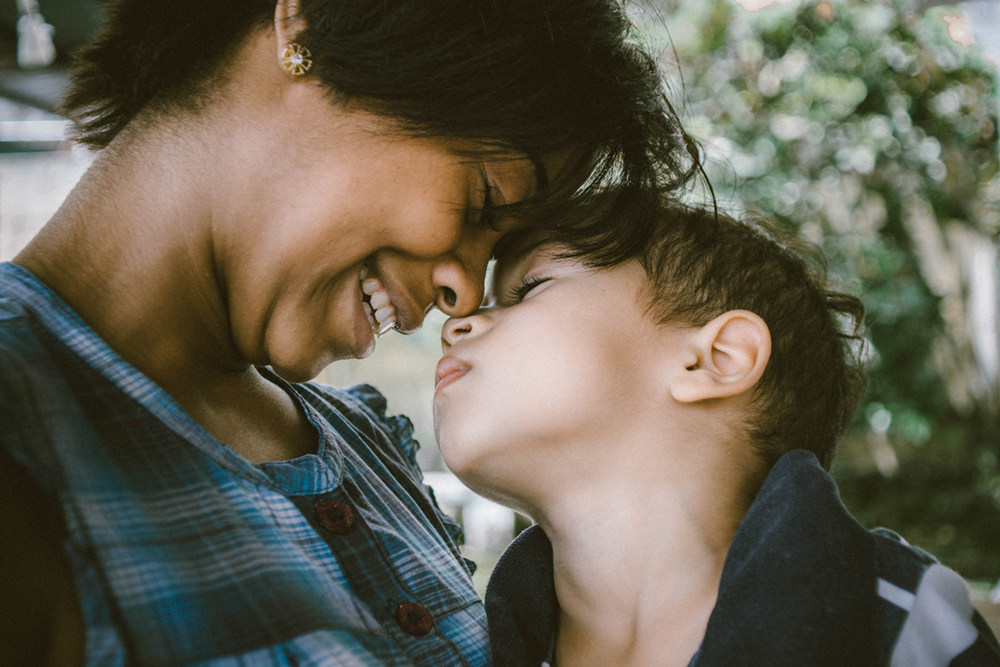
How to Train Your Child to Understand, Process & Verbalize Intense Emotions
Dr. Caroline Leaf – In this podcast (episode #275) and blog, I speak with clinical psychologist Dr. Becky Kennedy about rethinking the way we raise our children, the importance of saying sorry to our kids, why it is never too late to fix the mistakes we make as parents, how to explain our own emotions to our children, and so much more!
As Dr. Becky wrote in a recent Instagram post, we need to learn how to explain our emotions to our children. On their own,our emotional displays as parents or guardians, do not overwhelm our children. It is okay to have emotions as parents! Every parent has feelings, and our kids see these feelings. This is a good thing, because our children learn from us that emotions are part of being human.
Children often feel overwhelmed, anxious and unsafe when our big emotional displays are partnered with the “aloneness” that comes with not having an adult explain or connect with them and let them know how they are feeling. As parents and guardians, we need to own our feelings and assert our permanence. We should do this by saying something like, “Just like we talk about your big feelings, adults have big feelings too. Sometimes I need a bit of time to myself to care for these feelings in my body. In these moments, I’m not leaving you, I’m not mad, and you didn’t do anything wrong. I’m still your strong papa/mama who loves you.”
When it comes to our emotions, the most important thing is not what we do in the moment when we break down in front of our kids, but the before and after. We need to prep our children and let them know what we are going through and what we are feeling. As Dr. Becky points out, it is not information that scares children, it is the absence of information that scares them. If we don’t say anything to our children when we are struggling, they assume the world is crumbling around them and often blame themselves to regain a sense of control.
The goal as parents is not to not have emotions. Rather, it is about teaching our children about emotions in a healthy and constructive way. When we do this, then the feeling gets stored next to the story in the child’s mind and body, and they start to understand that they are not a bad kid, and it is not their fault that dad is angry or mom is shouting or crying. We turn an unformulated experience into a coherent narrative (which is actually the process underlying therapy!). This helps the child better understand themselves and their environment.
We need to remember that our children do what we do, not what we say. We treat others the way we treat ourselves. The more we practice facing and dealing with our own feelings, the more we can model this for our children and help them process their own experiences.
This also includes apologizing, no matter how old we are or how grown up our children are. When it comes to apologizing, the “sorry” means less in the moment than your tone and intention. When we pair a sorry with a reflection, then we show our children we have a plan to be better—we repair, not just react. Repair is in fact a marker of secure attachment; as parents you will mess up, and if you can work from this, then that is a healthy sign that your relationship with your children is in a good place. Being a parent doesn’t mean that you can never mess up!
Now, you may be feeling like, as a parent, you did everything wrong, especially after listening to this podcast or reading this blog. Remember, these two things are BOTH true: the early years of childhood matter, but it is never too late to help your child heal or change the way you relate to your children. It is never too late to say sorry to yourself and to your children. The inner child is always waiting for repair!
We all do the best we can with the resources we have in that moment, but this doesn’t mean we don’t make mistakes. We can learn, shift, repair, change and grow—no matter how old we are or how old our children are. We should try do the best we can in the moment AND we should always try to be better.
It is also incredibly important that we teach our children from young about consent. As Dr. Becky noted in a recent Instagram post, if we want our kids to be capable of saying NO, STOP IT, I DON’T WANT TO & I DON’T LIKE THAT, we have to build early circuitry that supports self-trust, body sovereignty, and consent. For example, if your child wants to stay by your side at a party, tell them: “I’m here. You can stay by me for as long as you want. You’ll know when you feel ready to join.” When you say something like this, your child learns that they can trust their own pace and sense of readiness—they don’t have to be pressured into doing what they don’t want to do. Or, say your child is playing with a toy and her younger sister starts crying and demands the toy. Tell your older child that “You are allowed to have that toy. Those are your sister’s sad feelings, and I can help her with them. It’s not your job to make her feel happy.” Your older child will learn that they don’t have to suppress their wants to satisfy others. They will learn how to recognize someone else’s disappointment without feeling responsible for causing it or making it go away.
When we doubt our kids’ feelings, they learn to doubt their own feelings. Essentially, they learn how to gaslight themselves, which makes it harder for them to validate to their own thoughts, feelings and experiences and say NO when someone pressures them to do or say something that makes them uncomfortable.
Indeed, Dr. Becky notes how the attachment patterns we develop when we are kids affect us when we grow up. We SEEK OUT people who allow our most-practiced circuits to kick into gear. For example, if a child grows up in a home with constant emotional invalidation, with words like “dramatic” and “too sensitive” and “disproportionate reactions”, years later, they will be naturally attracted to adults who confirm the same stories. The body seeks what it is accustomed to. These are like parts of us that get frozen in time.
Teaching our kids to look in and trust what is happening to them is critical to their confidence and ability to take care of their own needs. Children should be taught about self-care from youth, not just when they are entering into adulthood. We should tell our children that they are the only one in their body— they are the only one who knows how they feel and what is right for them. We need to validate their unique experiences and feelings and let them know that they can express these feelings and trust themselves. We need to let them know that they have sovereignty over their own body.
To read the original article click here.
For more articles from Dr. Leaf click here.






